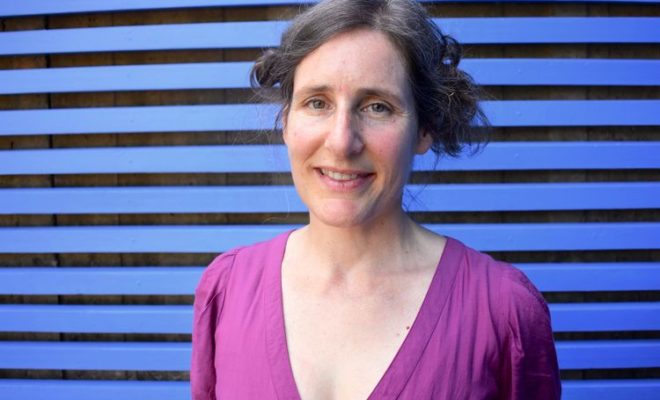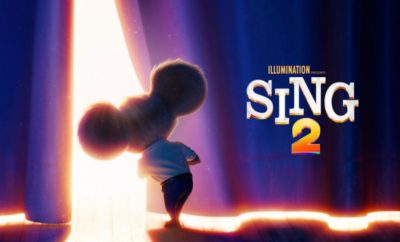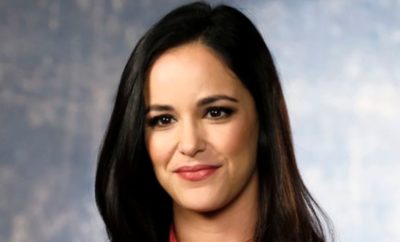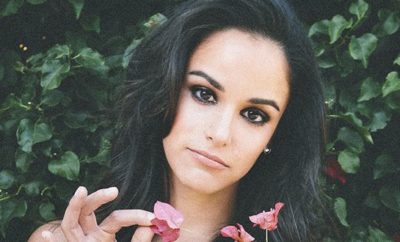
Interviews
Andrea Dorfman – Spinster
By: Lisa Steinberg
Q) You had been working on the script for some time and it’s been deemed the anti rom-com. It’s this honest blunt look at the way we view singledom. Where did the concept stem from and how did your vision evolve to what we see on screen?
A) Years ago, my creative collaborator Jennifer de Alba and I had been working on with stories the film. It really came from a time of my life when I was in my mid 30s single. I’m sure you can relate to this with getting either married or having kids. It just seemed like life was passing me by, that I was living in a couple’s kind of world. And I was starting to feel really bad about it. And I have a friend who’s super blunt. And she just said, “Well, I would never, ever,” and I really had to sit with that idea for the first time and think, “What would that be my life? Like, no.” It was the beginning of a number of years at the time and it was really when I finally kind of stepped into my life in a different way and people around me making bad choices just to avoid being single and getting together with people so that they could have a kid instead of it is really the right thing to do for them. And I didn’t want to do that and save the world from a different perspective. Instead of following everybody else, later I felt like I was making meaning of my own life and for me as a writer. And I talk about this all the time because she also had friends who were she was married at the time when she wrote it she admired and loved who were single, and yet, everybody would get together and say, “Oh, what we should set out doesn’t demand as much as ours married friends…” Sort of it’s the people in couples. And in that really, really bothered Jennifer as well. So, when we started thinking about making a movie that gave people a more expansive idea of our time here on the planet, just because not everybody does meet somebody, and I certainly even in relationships felt incredibly lonely. And I just don’t think it’s a solution for everybody. We don’t live in a one size fits all really long.
Q) I mean, I certainly agree. These wrong conclusions really perpetuate this kind of very unhealthy toxicity that we get into our head that these are the norms. These are what we should aspire to or these are why our lives are “fulfilled” when one person’s definition is not a uniform definition of fulfillment. And that’s what I really appreciate so much about this film. It is that it really takes that into that concept and turns it on its head and like you said, what if I don’t find someone? Okay, fine. I’m fulfilled in my life and that has meaning and other regards that don’t really revolve around.
A) I think humans…I think we, especially in North America, in our consumer culture we really do get used to ideas of like, “I will be happy when I get such and such,” whether it’s a relationship or a thing or an item of clothing or a certain status immediately pitches ourselves to something that we could never get and therefore, never be happy at work qualifying. Relationships can be a delightful trope. But I think more than that, I think it really helps people how to be in a way that they don’t achieve. And it can lead to an unsatisfying life or worse. I’m interested in the idea of creating meaning, all sorts of different ways. We wanted to explore with Gaby’s (Chelsea Peretti) character.
Q) I don’t feel that like it’s really hit home the kind of the final scenes where they have this some confrontational dinner party together where she’s like, “I don’t have to justify my life to somebody else. I’m happy within myself and what I have going on.” I feel like that that seemed like extremely important, but it feels to me…It felt like it came a little bit late in the in the movie. I mean, obviously, we see these different instances for Gaby where like she’s decided she’s gonna start this restaurant and then she teaches her niece so much about being independent and like how it’s okay to just be herself and enjoy what she wants. I wanted to talk about the scene and the significance we see here where there’s this judgment that this man is trying to hold over, Gaby’s character, and we see her sort of speak up for herself but she’s really all along throughout the movie so moment to me.
A) Like you said, here’s my journey. I realized all along I was this regular person, kind of like I was always such and such. People who have asked her about her singledom and what it means and why and putting her in a position to answer for it in a way that you wouldn’t necessarily have to. My choices and the reason why that scene is typical or why we put it there is because this is taking it into a totally different realm of somebody who is actually threatened by who’s she’s claiming to be at that point, because up until that point, she hasn’t actually. I am and I want that. And I think one of the reasons why being single or just being really cold, so much power in society is that it’s different. It’s disruptive. It goes against a current and people feel sometimes like that. And the characters really come out very strongly. It represents that idea of somebody who’s really almost insulted or defensive. Because this choice she’s made actually in an unconscious way is challenging her own choices a little bit. It’s different than the other times to stand up for herself and she’s in a different place as well because she’s finally at a place where she wants to be.
Q) Chelsea Peretti stars as Gaby, and obviously we know her from her portrayal of Gina on “Brooklyn Nine-Nine” who similarly seems to have not much of a filter. Is that why she brings such realness with Gaby or is it just kind of Chelsea’s natural comedic delivery that pairs her perfectly as this character?
A) She is fantastic to work with. First of all, she brought it. She was incredibly comfortable and natural in that role. She really is a completely different character than what she played naturally when watching “Brooklyn Nine-Nine.” What she was able to do is she connected to the script. She loved it and also felt like this is something that she could be living, which was really important. She really loved the script. And the dialogue Jennifer, my writing partner – the pursuer of the script, is just a brilliant writer in Chelsea loved it. Loved the writing. But we also gave her the freedom to if something wasn’t reading or didn’t sound completely right coming from her mouth that she couldn’t change it. Giving her that creative freedom she was able to play with the lines because she’s obviously a comedian herself and an actor. She would have her own take and the different deliveries and maybe I had into space from the script. And so she was a really wonderful collaborator for me as a director to work with, because she just elevated the character and really, embodied it.
Q) There is a great, kind of uncomfortableness we see with the other characters around a life spent sans children. I mean, the brother is divorced and is a single dad. And the dad may be remarried, but there’s still this taboo of women who are seemingly like we said not fulfilled enough even with career and having a path that they’ve determined for themselves as being seen as the Negative factor. Like I said, we really kind of see this from the brother. We see this from the father. We even see it a little bit like her friend who continually tries to set her up. But one positive force we see that kind of really validates everything for Gaby is when she goes and meets up with like the neighbor and she’s this really accomplished older woman. And it’s really kind of juxtaposed between the men and the male figures and other figures in her in her life. And I wanted to talk a little bit about what the neighbor really kind of represents and provides as like a pair parallel juxtaposition perspective for Gaby and the importance that the neighbor really plays for her.
A) Jennifer has a friend who was a biologist and she was her friend. There was a point where like every woman, I thought maybe I should do all these things at the filmmakers and artists and also lots of other things, and it’s not that I didn’t want kids. I think I would have really got a human experience that I missed out on and this character, experiential person, who kind of wanted to do everything but we can’t do everything and you can’t do everything certainly with the same intensity that you might play. So, I think we’re also told us women you can have it all and that was a real sort of in the 80’s and 90s and it’s been passed down. Like you can be amazing and maybe we can have it all, but the work is not going to be amazing. And we’re going to be exhausted and I think that there’s some great value and richness and not doing it all and admitting that maybe I just want to do some of the things but really well. When we talk about this being kind of insular, I talk about as being kind of anti-mom calm in the sense that like, the rom-coms are either like learning something about yourself at the end or you’re really kind of overcoming something. But that’s really not necessarily the sense for Gaby. I mean, she’s not really overcoming anything. She’s just really recognizing within herself that it’s okay to reclaim this word being a spinster like, it’s okay that you can redefine it. It doesn’t have to be this big label that the other people tend to put on it in order to really judge one another. And that’s what I really enjoyed about the movie is that it’s got this great reclaiming. So, you put this word out there and it has this broad definition that we’re well aware of, but really Gaby is reclaiming that also the idea of females really owning their own story and being okay with that on its own.
Q) There is all this talk about cancel culture going on and this film Gaby is basically cancelling the idea that fulfillment in our lives in our 30s and 40s should be revolve around having a partner or family. It’s this reminder relationships aren’t validation or the bar which we should set our lives to. Why was that important message for women especially in 2020 about owning self-love and recognizing our worth isn’t wrapped around the familial construct and that ambitions aren’t everything?
A) I think you kind of really just kind of cemented it with what you just said. I mean, there is this great freedom that we don’t often recognize in ourselves because we’re hyper focused on everything else in our lives or what we’re told to focus on in our lives and I really appreciate it as much as well that it’s such a great story to tell that isn’t your typical story that we see. And then it’s these wonderfully talented females that are also behind this great story. It’s not a man trying to tell a female perspective of what a spinster should be. It’s women who are reclaiming and reopening and redefining what that term can mean to a positive perspective or a perspective that allow us to keep it more fluid. You mentioned that because the set was barely known, but was overwhelmingly female. I worked as a technician in film in the camera department. Film crews being overwhelmingly male.
Q) Is there anything else that you’d like to touch on about the film that maybe we didn’t talk about? What you would really like the audiences to take away from watching this movie?
A) Really the only thing I find is that I’m just going to find that at the end that was largely female. Even to have a cinematographer who’s a woman more unusual. And our cinematographers Stephanie Anne and Weber Biron are super talented. Really, I think to tell the story with the female through it was also very special. I mean, not everybody but a lot of people. And it creates a different mood on set, I have to say. It makes me so happy that there are so many more women, writers and directors and storytellers.





You must be logged in to post a comment Login